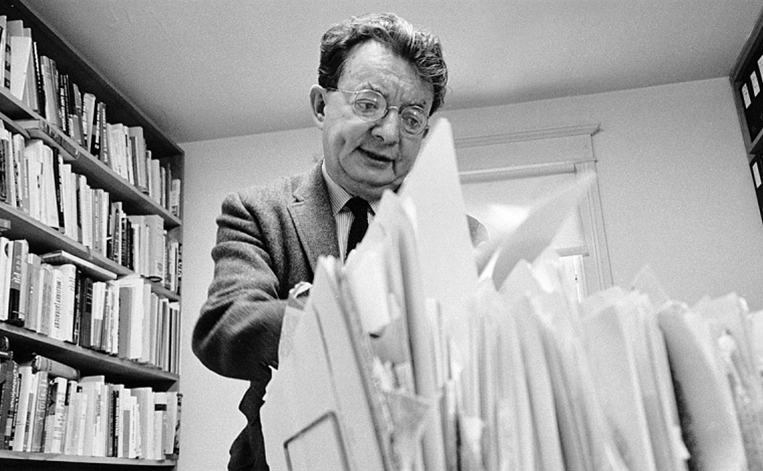In April, I had the honor of hosting the Izzy Award ceremony that acknowledged trailblazing reporting by five journalists and organizations on corruption and malfeasance in the U.S. and across the globe. The Izzy Award is named after maverick journalist I. F. “Izzy” Stone, who launched I. F. Stone’s Weekly in 1953 and exposed government deception, McCarthyism, and racial bigotry. Stone’s formidable legacy reminds us the necessity of speaking truth to power and that the central tenet of journalism is to uphold the public interest.
Five worrisome trends afflict the media ecosystem today. First is the unprecedented concentration of media ownership into the hands of six giant corporations in the United States. This development over the last four decades mirrors the horrific income and wealth inequality that has grown alongside it.
Second, the rapid demise of local journalism has rendered at least 40% of counties in the U.S. without a credible local media outlet. If information is a citizen right, and a means to consolidate democracy at the grassroots level, then surely this trend is a stark reminder of why polarization, disinformation, and fascist ideologies are on the rise.
Third, and related, are the huge constraints on investigative journalism, and how access and proximity to power circles is fast replacing the necessity to challenge and uncover tyranny and oppression.
Fourth is the rise of big tech giants that are usurping the role of publishers, editors, and informed opinion makers. Newsrooms — especially nonprofit ones — are operating in such a structural bind, where corporate and political power could impede their work.
And lastly is the continued absence of marginalized voices in the narratives constructed by dominant media. The lack of diversity in newsrooms, or the unheard stories of undocumented people, the homeless, and those without healthcare, make it even more imperative for independent journalism to flourish.
For all these reasons, it is urgent to continue the legacy of Izzy Stone and honor those who embark on truth telling in these difficult times.
Since 2008, the Park Center for Independent Media (PCIM) at Ithaca College has offered a space for the study of journalism and media outside corporate systems — and has striven to acquaint students to the importance and impact of independent media by offering relevant courses, internship programs, and extensive interaction with leading journalists, media critics, and content producers in the United States and elsewhere. Each year PCIM reaffirms its mission by honoring journalists and media outlets for their outstanding contributions to independent media.
During 2021, reporting from the International Consortium of Investigative Journalists gave a sterling example that laid bare the system by which elites worldwide park profits in offshore companies to evade taxes. This important investigation sadly involves rich countries like the U.S. and nations in western Europe that are quick to criticize the countries of the global South as havens of embezzlement. Their reporting not only exposed banks, law firms, and other stakeholders involved in corporate malfeasance, but also the moral bankruptcy and hypocrisy that defines the power asymmetries between the global North and the South.
In the U.S., three nonprofit news organizations published timely investigations into how misconduct and negligence have harmed poor residents of New York and Illinois, especially in communities of color. These newsrooms have held governments and corporations accountable while raising the voices of marginalized residents, patients, and doctors. Their stories carry on the lifelong mission of I.F. Stone, who believed that uncovering government corruption was at the heart of public service journalism.
Block Club Chicago and the Better Government Association have done committed grassroots investigative reporting that revealed the depths of fraud surrounding Chicago’s Loretto hospital, which serves many Black and Latinx and low income neighborhoods. The impact of their stories has been tremendous, bringing down a greedy elite of politicians, businessmen, hospital administrators, board members, and doctors, all the while also telling the stories of patients’ and workers’ incredible courage to reveal cruel malpractice and a sweeping vaccine scandal at Loretto.
New York’s THE CITY investigated the careless system of inspections under the New York City Housing Authority (NYCHA) that wrongly declared thousands of public housing apartments lead free. Reporting further outlined NYCHA’s history of ignoring residents’ dangerous living conditions, leading to squalor and death. Following THE CITY’s stories, NYCHA was awarded funds to address the lead crisis.
Independent journalist Jenni Monet was also recognized for examining how some communities are made invisible, particularly the 6.79 million Native Americans living in the United States today. Their lives and struggles pass unknown to American publics — it is therefore imperative that Indigenous stories are brought to light as the U.S. tries to heal the wounds of the past and present.
Nonprofit newsrooms are undertaking a critical role to ensure public accountability; so too are journalists working to end the silence and forced invisibility of millions of native Americans. Our media must reckon with power and dominant narratives to inform and step toward and more peaceful nation.
Without accountability, there can no justice. And without justice, as Martin Luther King said, there can be no peace.
Raza Rumi is the Director of the Park Center for Independent Media. This is an extension of his opening remarks for the 14th Annual Izzy Award, celebrated on April 26, 2022. You can watch the full virtual ceremony here.

